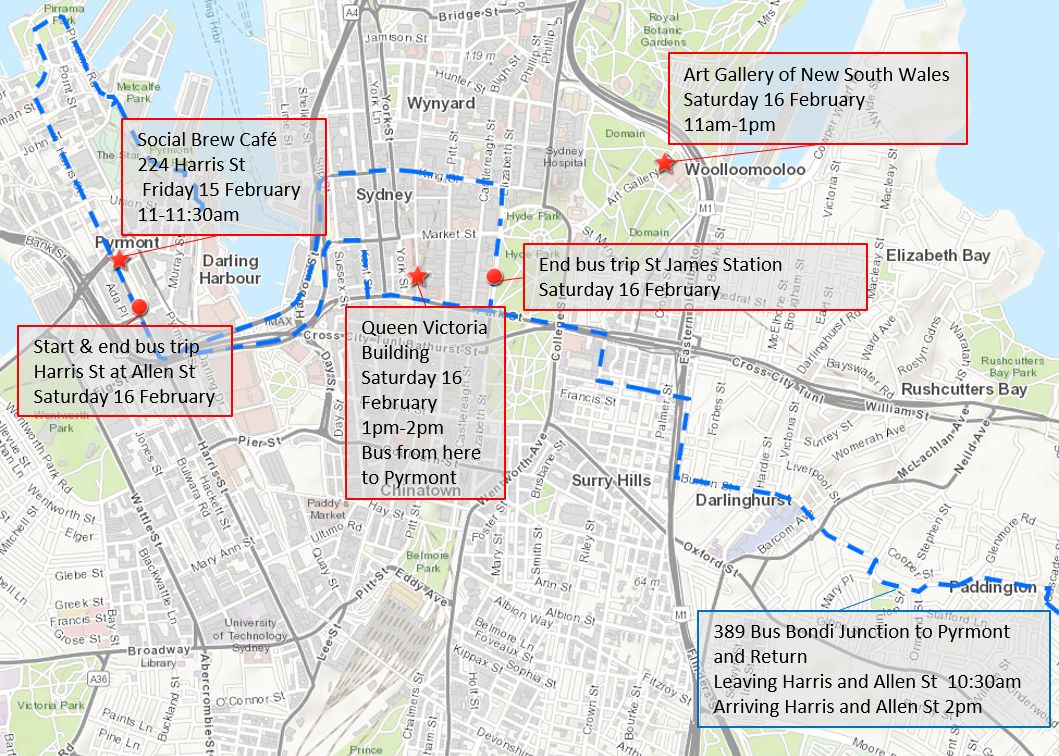This alert is no longer current.
NSW Health has issued an alert for people in Pyrmont and the Sydney central business district (CBD) on Friday 15 and Saturday 16 February, after a woman in her forties spent time in these areas while infectious with measles.
The woman, who believed she was vaccinated as a child, developed the infection after returning from Israel which has recently been experiencing an increase in cases. This is the 14th person to have spent time in NSW while infectious with measles since Christmas.
The woman spent time in a cafe in Pyrmont, as well as the Art Gallery of NSW and the Queen Victoria Building (QVB) while infectious. She travelled to the CBD from Pyrmont on the 389 bus which runs from Bondi Junction to Pyrmont (and return) via the CBD.
People who were in the same place at the same time as the woman should be alert for signs and symptoms of measles until 6 March, as it can take up to 18 days for symptoms to develop after exposure to a person infectious with measles.
Further information about measles is provided below.
Details of the potential exposure sites and times are provided in the map and table below.
Pyrmont, Sydney CBD, and 389 Bus,
Friday 15 February - Saturday 16 February 2019

Map created using Esri (Sources: Esri, HERE, Garmin, USGS, MET/NASA)
Stars indicate exposure sites, circles indicate start and end of bus trip, dashed line indicates route of 389 bus (truncated, route continues to Bondi Junction).
| Friday 15 February 2019 |
Social Brew Cafe, 224 Harris Street Pyrmont 11:00am to 11:30am |
|---|
| Saturday 16 February 2019 |
389 bus from Harris Street before Allen Street Pyrmont (departing approximately 10:30am) to St James Station bus stop Elizabeth Street
Art Gallery of NSW, Art Gallery Rd Sydney, 11:00am to 1:00pm
Queen Victoria Building (QVB), George Street Sydney, 1:00pm to 2:00 pm
389 Bus from QVB to Harris Street before Allen Street Pyrmont (arriving approximately 2:00pm) |
|---|
About measles
Measles is a highly infectious viral illness which begins with a cough, fever, sore, red eyes, and runny nose, followed three to four days later by a red spotty rash which begins on the face and neck and spreads to the rest of the body.
Measles is highly contagious and is spread in the air through coughing or sneezing by someone who is unwell with the disease.
People are at risk of measles if they are exposed to an infectious case, and have never had measles, or have not received two doses of measles containing vaccine. Two doses of measles containing vaccine provide lifelong protection against infection in 99 per cent of people. Most people born before 1966 are assumed to be immune to measles.
In Australia measles containing vaccine is given to children at 12 months of age as measles mumps rubella (MMR) and 18 months of age as measles mumps rubella varicella (MMRV).
NSW Health encourages all people 12 months of age or older, and born during or after 1966 make sure they have received two doses of measles vaccine. Measles vaccine is available for free from GPs in NSW for people who do not have evidence of measles immunity. For people who are unsure of whether they have previously received two doses, it is safe to receive more than two.
Travellers are encouraged to discuss their travel plans with their GP to ensure that they are protected against preventable diseases such as measles prior to travel. While measles is rare in Australia, it remains very common in many countries including most of southern and south east Asia, and large outbreaks are currently occurring in Europe, the United States, and parts of South America.
People travelling with children under the age of 12 months should discuss travel plans with their doctor, as the first dose of the vaccine can be given as early as 9 months of age, if the child is travelling to an area where measles is common, or outbreaks are occurring.
People who are experiencing signs and symptoms of measles should seek medical attention. NSW Health recommends calling ahead to the practice or emergency department to alert of them of your symptoms so that measures can be taken to limit your exposure to others upon your arrival.
For more information download the  measles factsheet, or visit the measles webpage.
measles factsheet, or visit the measles webpage.